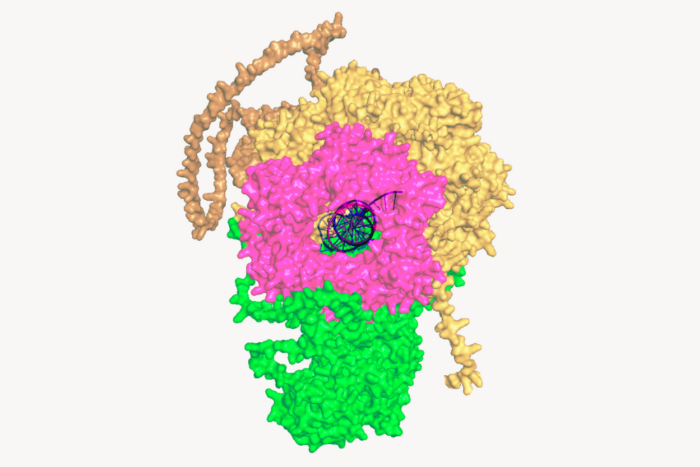Under its new director, the grants office will explore fresh ways to ease scientists’ hunt for funding
by Eva Kiesler, Managing Editor

Collette Ryder says she hopes to meet with all heads of laboratories to learn about their individual needs and help them secure funding.
Ask a handful of scientists what they wish they could spend less time doing, and chances are many will say applying for grants. Rockefeller’s Office of Sponsored Research and Program Development (SR-PD) strives to provide the highest level of assistance for those seeking to master the increasingly competitive world of funding opportunities. And its new director, Collette Ryder, intends to work closely with heads of laboratories to identify new ways of helping.
A grants professional with many years of experience in sponsored projects administration, systems, and compliance, Ms. Ryder joined Rockefeller last month from the New York Genome Center, where she served as its director for sponsored research. She has previously worked in the grants offices of the Mayo Clinic, Children’s Hospital of Philadelphia, and Children’s National Medical Center.
A native of Pennsylvania, Ms. Ryder graduated Cum Laude from East Stroudsburg University in 1996, with a bachelor’s degree in vocal performance. While working as a grants specialist at the Mayo Clinic, in Rochester, Minnesota, she drove back and forth to St. Paul several times a week to attend evening classes in business administration at the University of St. Thomas Opus College of Business. She earned her MBA in 2007.
“We are delighted to have Collette join the Rockefeller community,” says Michael Young, Richard and Jeanne Fisher Professor and Vice President for Academic Affairs. “She brings a lot of energy, experience, and helpful new ideas that should enrich the activities of SR-PD.”
We spoke with Ms. Ryder to learn more about her background and future goals.
Q: What are the most important ways in which your office can help scientists at Rockefeller?
A: Clearly, the changing landscape of research funding is one of the biggest challenges investigators are grappling with today. Over the past few years, the budgets of organizations like the National Institutes of Health and the National Science Foundation have effectively dwindled, and as a result it’s getting harder especially for young scientists to secure research support. In this competitive environment, writing a clear and succinct proposal is key, and we work closely with faculty and postdocs to enhance their applications. We also conduct in-depth searches to help researchers identify alternative sources of funding such as philanthropy foundations and private donors.
SR-PD also handles some aspects of regulatory compliance—the many things administrators and scientists must do to make sure we continue to receive government- and state-sponsored funding in the future. The scope of regulatory requirements is beyond our control, and some of this work needs to be handled by scientists themselves—for instance, there are reports we simply cannot write for them. Still, there is a lot we can do in this area to make the process as smooth as possible for researchers.
Q: Tell us about some of the other things your office does.
A: One of our key functions is to anticipate and respond to research needs and shifting funding trends, and assist investigators in navigating the sponsored research funding landscape and manage sponsored research awards. We identify and disseminate funding opportunities, we review sponsored research applications and reports, and we endorse and submit these documents on behalf of the university.
In addition, SR-PD acts as a liaison to sponsor agencies in negotiating agreements and resolving funding issues.
Q: How did you enter the field of research administration and funding in the first place?
A: My educational background is in music, but some years after earning my bachelor’s degree I switched fields and started working as a grant specialist at Mayo Clinic. I was very motivated to help promote science, especially because my mother had lived for many years with cancer. She was able to benefit from an innovative surgical approach that extended her life for about 15 years. The experience left me amazed by the wonderful things scientists are able to do, and I jumped on the chance to be part of their mission.
Q: What attracted you to Rockefeller?
A: I had heard so many good things about the university from so many people, and really felt this was a place where I would be able to grow professionally and make a difference. The idea of being part of a small community where everyone works together toward the same goal really resonated with me.
Q: What is your goal for the Office of Sponsored Research in the near future?
A: I intend to meet with all the faculty to learn about their individual needs and identify new ways we can help them find funding opportunities and submit successful grant applications. I’ve already got some great ideas from a number of researchers I’ve met with. I will also be meeting with other administrative offices to figure out how we can work together more seamlessly to further improve upon the services we provide for our scientists.


